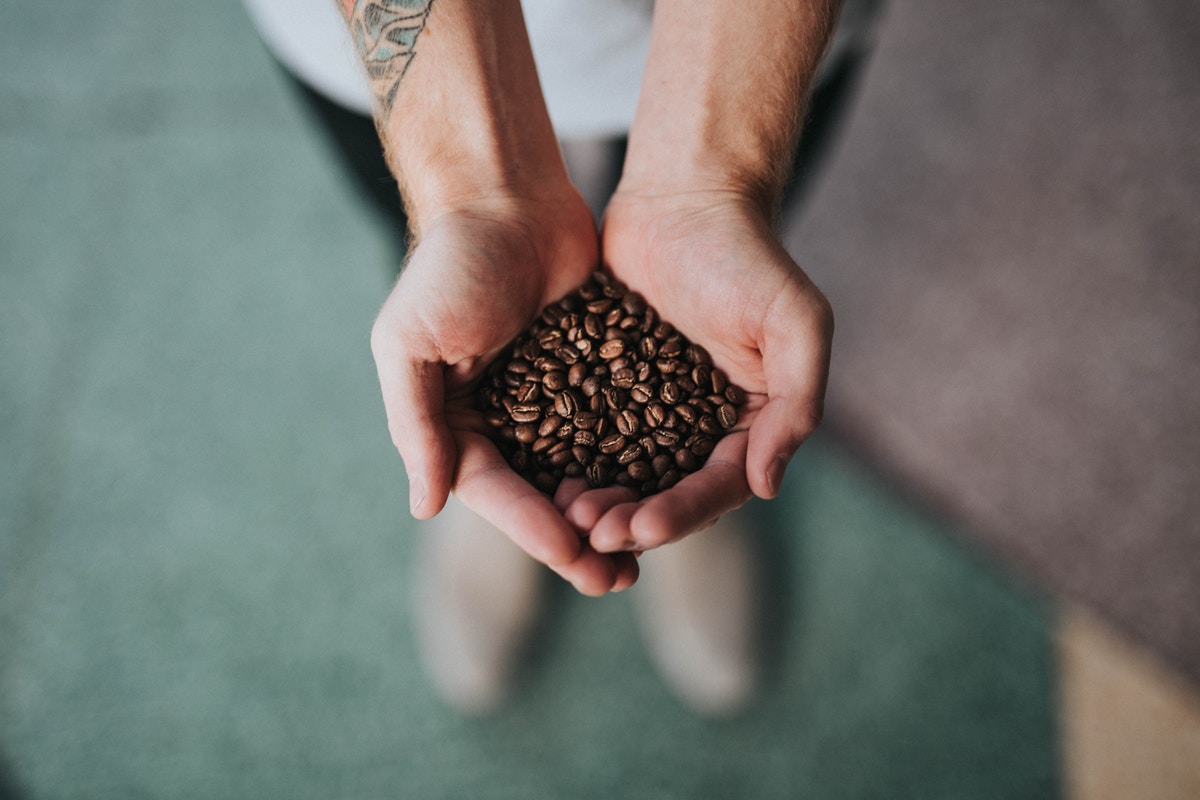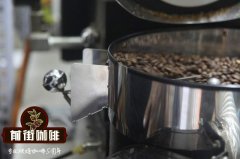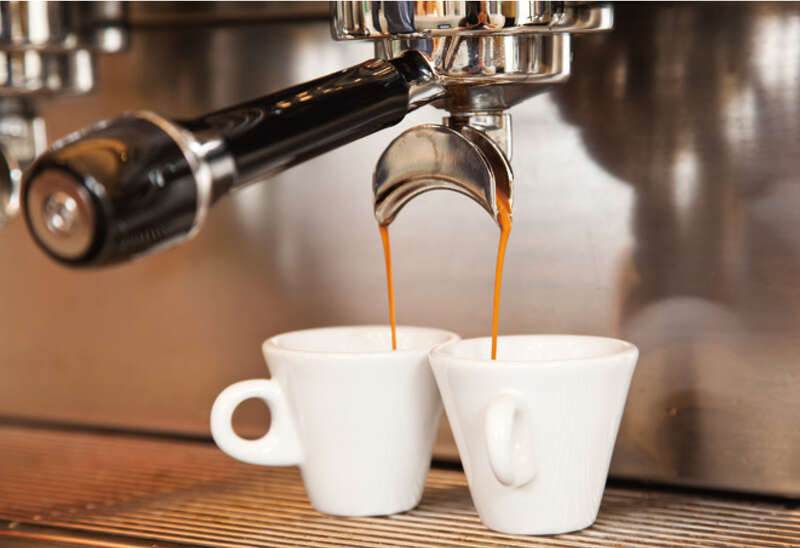Baking dates aren't everything! The freshness of coffee beans is actually a mystery!
Professional coffee knowledge exchange more coffee bean information please follow the coffee workshop (Wechat official account cafe_style)
Many people know that coffee is also an ingredient and needs to be properly preserved and freshly used.
Stale coffee not only tastes dull, but even produces ochratoxin if it is not well preserved, which is harmful to human health. From instant coffee in the first wave, espresso in the second wave to boutique coffee in the third wave, people pay more and more attention to the quality of coffee, and a key element of quality is "fresh".
But many people want freshly baked coffee, but they don't know the relationship between freshness and taste, and they don't know what freshness means.

Baking date isn't everything.
When we only talk about the baking date, it doesn't mean that good coffee can be found through the baking date.
The freshest ≠ is the best for ≠.
When we buy other food, we also use various means to determine whether the food is fresh, such as the date of production, or other visual and appearance clues: hardened bread, bruised fruit, red fish gills. Wait, but whether the food is palatable and tasty needs to be confirmed by the final cooking and tasting.
The same goes for coffee beans. Don't judge the coffee beans just by whether the baking date is fresh or not. at least you need to open the coffee bag, evaluate it and have a chance to taste the coffee. Some guests will simply ask for the "freshest" coffee beans, regardless of the variety, roasting degree and flavor performance of the coffee beans. As a result, they may buy a bag of fresh but "bad" coffee beans.

What does the freshness of coffee mean?
There are three ways to explain fresh coffee: fresh raw beans, fresh roasting, and fresh grinding. Except for home grinding, fresh raw beans are a blind spot for most coffee consumers, but the editor mentioned this in another article (the biggest misunderstanding of coffee consumption: freshly ground coffee is fresh coffee? ). All that remains to be discussed is "fresh baking".
So, what is "fresh baking"?
As we all know, freshly baked coffee is not suitable for direct drinking, because coffee beans emit a lot of carbon dioxide, which can not give off the flavor of coffee beans (or rinse out baked flavor). During this period of time, we collectively call it the "bean cultivation period". It is only after the bean cultivation period that we reach the "best flavor period". As soon as the best flavor period is over, it is naturally "expired".

The best flavor period of → in soybean cultivation period is → expiration.
If you look at it in this way, it will be relatively simple and clear: as long as you can drink coffee beans at the end of the bean cultivation period and enter the best flavor period, they can be regarded as "fresh baking".
For example, depending on the depth of roasting, most of our coffee beans will last for 4-7 days, so if you plan to buy them back and drink them immediately in Kaifeng, the beans that are about 4-7 days after baking are naturally "the freshest"; even if they are finished within the best flavor period, even beans that have been baked for half a month and have been fully raised are considered "fresh". If you still have grain stored at home, or if you are going to give it away, of course you can choose the beans that have just been baked.

So why is it said that the freshness of coffee is actually a mystery?
Because what we usually call the "4-7" bean cultivation period or the best flavor period of "one month" is actually a very subjective topic.
Many professional bean bakers have their own standards to set an average lifespan for coffee beans, and there are too many variables that we can't grasp:
1. Coffee itself will affect you. Different varieties, altitude, treatment, roasting degree of coffee beans, carbon dioxide emissions are not the same, whether the bean cultivation period, the best flavor period, will not be exactly the same.
2. Roasting methods will also affect the life of coffee beans. The heating method and roasting method of the roaster will also change the characteristics of the coffee, which will eventually lead to the difference of the bean cultivation period or the best flavor period of the coffee.
So even if it is the same bean, different bakeries will have different standards of freshness. The editor has encountered a more extreme situation: some beans can enter the best flavor period the next day after baking, but the flavor will be seriously lost in just half a month; some coffee beans will not be too bad until they are kept for half a month.
When in doubt, it's best to ask the barista or baker, who will give you the best advice on specific coffee beans.

How do you make good coffee with different freshness?
In order to introduce the best flavor of the old bean, the water temperature, grinding thickness and powder-water ratio of the coffee must be corrected and confirmed. The longer the beans are left, the more thoroughly they exhaust, and the more holes there will be, which means that when you grind these coffee beans, they are more likely to disintegrate, making it easier for hot water to come into contact with coffee powder and dissolve flavor substances. If the same grinding thickness, water temperature and powder-to-water ratio are used to brew old beans and fresh coffee beans, it may lead to insufficient extraction of fresh beans, or overextraction of old beans, resulting in bad coffee.
To put it simply, the fresher the coffee beans, the higher the water temperature, the finer the grinding degree, and the greater the powder-to-water ratio; and vice versa, the older the coffee beans, the lower the water temperature, the thicker the grinding degree, and the smaller the powder-to-water ratio.
Last
At the beginning of the third wave of coffee in China, the bakers of fine coffee beans tried to distinguish themselves from the bakers of commercial beans, focusing on slogans such as "fresh roasting" and "Please look at the baking date rather than shelf life". And on the beanbag: "it is best to drink / brew the coffee within a month after baking", making the idea that the coffee beans are as fresh as possible, but they are afraid of overcorrection. While emphasizing the freshness, we should also tell the guests that "there is not only one standard for the freshness of coffee beans".
END
Important Notice :
前街咖啡 FrontStreet Coffee has moved to new addredd:
FrontStreet Coffee Address: 315,Donghua East Road,GuangZhou
Tel:020 38364473
- Prev

What's the difference between latte and mocha? How should I drink mocha coffee?
Professional coffee knowledge exchange more coffee bean information Please follow the coffee workshop (Wechat official account cafe_style) mocha coffee and latte are the most fancy coffee we see in cafes. Many people think that mocha coffee is similar to latte. Today we will talk about the difference between mocha coffee and latte. Although both kinds of coffee belong to Italian coffee, both are used.
- Next

The soul of Italian coffee! Five Factors Affecting the Extraction of Espresso
Professional coffee knowledge exchange More coffee bean information Please pay attention to coffee workshop (Weixin Official Accounts cafe_style) What is concentrated? Espresso is coffee extracted in a short time by semi-automatic or fully automatic coffee machines, using temperature and pressure. Conditions for defining Espresso: pressure
Related
- Beginners will see the "Coffee pull flower" guide!
- What is the difference between ice blog purified milk and ordinary milk coffee?
- Why is the Philippines the largest producer of crops in Liberia?
- For coffee extraction, should the fine powder be retained?
- How does extracted espresso fill pressed powder? How much strength does it take to press the powder?
- How to make jasmine cold extract coffee? Is the jasmine + latte good?
- Will this little toy really make the coffee taste better? How does Lily Drip affect coffee extraction?
- Will the action of slapping the filter cup also affect coffee extraction?
- What's the difference between powder-to-water ratio and powder-to-liquid ratio?
- What is the Ethiopian local species? What does it have to do with Heirloom native species?

